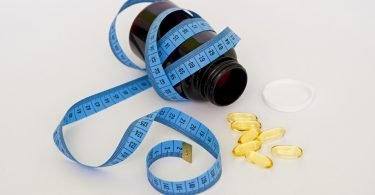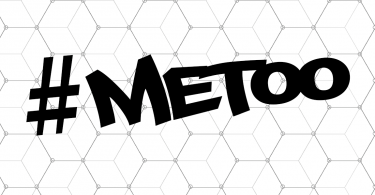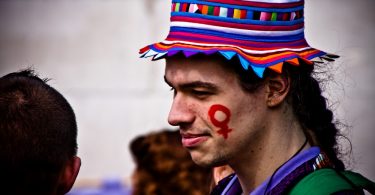Let me begin this discussion by setting one thing straight. The idea that one feminist or one feminist outlook can be better than another is a thought process which never has and never will sit well with me. Does this not go against the very principle of equality? Of course, I’m in no way saying that just because you have the same fundamental belief (i.e. equality of the sexes) does that mean that you’re going to get along, or you’re going to agree on the same things, but where does this competitive outlook come from?
So when an article arguing that feminists should feel morally obliged to become vegetarian or even better – vegan, was brought to my attention, I was immediately a bit confused. How do my eating habits have anything to do with my quest for gender equality?
What struck me as more confusing was the mention of this being a common question to debate. Was it? Have I been missing something? Never in my life has the thought of me tucking into a cheeky Nandos meant I wasn’t a very good feminist, or I didn’t take my beliefs seriously enough.
I’ve always respected vegetarianism. I understand that it is not only a lifestyle choice, but a deep belief many people have that eating another animal is wrong – or maybe they just don’t like bacon like I do! I see/hear/read about the mistreatment of the mass bred, mass produced, meat market and I too am appalled by many of the conditions. I have friends who’ve been vegetarians for as long as I’ve known them and cringe myself when I hear people ask them how they could possibly get enough protein in their bodies without eating steak, or how we’re ‘designed’ to hunt and eat prey. My sister has recently decided to cut out meat too, which has encouraged me to re-evaluate how much I have in my own diet…
But I like to eat meat.
In the same way it is a choice not to, it’s also a choice to eat it and one which I don’t think I should be made to feel guilty about. Just because I enjoy meat dishes, does not mean I do not care about animal rights. Of course, there are some mixed views on that opinion…
If you claim to be a feminist and you’re not vegan, then you’re absolutely confused on what the meaning of feminist is.
— Jessica (@JessyHiggy19) February 21, 2016
“you cant be a feminist if you arent vegan.” what i eat doesnt invalidate the fact i want equality for all humans regardless of status, etc
— margot solo (@skysclc) February 19, 2016
If you’re a feminist but not vegan, I shall ask one question: #notallwomen then?
— ftipifeminist (@ftipifeministt) February 12, 2016
” you can’t be a feminist if you’re not vegan” is possibly the dumbest thing I’ve ever read in my life. I want equality and cheeseburgers.
— Sailor Jerry (@GinoLaplante5) February 18, 2016
Are animal rights a feminist issue?
With that said, I’ve discovered some interesting viewpoints as to why many feel animal rights are such a feminist issue. If the meat industry is anti-feminist or destructive to equality in some way as I’ve seen suggested, does that mean I should feel morally obliged to change what I eat?
The argument of linked oppression is one I took particular interest to. Many argue that women and animals are often portrayed or viewed as objects rather than subjects in the same way. With women being seen as sexual objects, whilst animals are seen as edible objects. Both are also more directly linked with their bodies than a man would be. For example, when someone says ‘oh she must be on her period’ to describe an emotion displayed by a woman, it’s such a negative connotation towards her body and the way it makes her feel, as though her brain is completely out of control and unable to make rational decisions because she’s menstruating. In the same way animals are only seen as a source of food, with their bodies serving one function only and them having no rational state of mind.
In the same way, if we were to look at intersectionality, I’d hope everyone would agree that all oppressed groups should be included in the discussion – but does that include animals? Many would argue it does, and an animal which is continually forced to reproduce is a victim of normalised rape culture within factory farming. The female animals are used to produce milk or eggs and when they’re no longer of use they’re then butchered altogether.
The means to be meat-free
I’ll admit I’ve never looked at the farming of animals from this viewpoint before and the idea of the oppression of animals relating to the oppression of women linking so directly. But can we really take these ideas so literally?
With intersectionality again in mind, is it even feasible to suggest that all feminists should be meat free? What about the cultural or economical drawbacks of this? It can be an expensive process to live as a vegan in particular and some people simply don’t have access to the kind of food products they’d need to have a balanced diet without meat/animal products.
I also think it can be dangerous to suggest that all feminists should convert to a vegan/vegetarian diet as some of us just aren’t suited for this lifestyle. In our society women are already portrayed, and therefore prone, to monitor their food intake, talk about calories and try out fad diets much more compared to men. Food is so heavily linked within sexist thought processes, with eating disorders and the relationships women in particular have with food, so suggesting such a huge change to someone’s diet is necessary to be ‘morally’ correct could be extremely triggering to those with these kinds of issues.
Do animal rights groups objectify women?
Whilst we’re on the subject of animal rights issues within feminism, how could I not mention PETA? Recently a trio of protestors caused quite a commotion at London Fashion Week posing nearly naked, with just gas masks, underwear and carefully placed tape, to send the message that ‘fur is toxic.’
This is the most recent in a long, long, line of campaigns brought out by PETA to raise awareness for their mission to protect animals. It’s also the most recent in a long, long history of sexualising women in those campaigns to gain attention. If women aren’t the victims of murder, abuse or some kind of torture within their ads, they’re just naked instead. Think I’m exaggerating? Google image search ‘Stephanie Pratt PETA,’ ‘Alicia Silverstone PETA’, ‘Joanna Krupa PETA’, ‘Pam Anderson PETA’, the list goes on…

Peta.org
The idea is sadly very clear – ‘sex sells’. However, by further objectifying women in society, all PETA are actually doing is shooting themselves in the foot. An image of a naked woman only dehumanises her, meaning the story behind her beaten or murdered body or trying to get the message across that the lining of fur coats can contain deadly toxins by wearing gas masks is simply lost.
So if we’re looking at the correlation between feminism and vegetarianism/veganism, I’d go as far to suggest giving PETA a wide birth is a much less problematic suggestion!
Draw your own conclusions
Does not eating meat make you a better feminist? As a meat eater, I’m going to say it doesn’t. Whilst the links between the oppression of women and animals has opened my eyes to a new way of thinking on the matter, I see some distinct flaws in those arguments. Maybe I’m looking for them to justify my own argument, I’ll admit that could be the case. But I for one don’t feel in a position to tell anyone how the food they put into their bodies impacts on their fundamental feminist beliefs. I wholly support any vegan/vegetarian – I just don’t want to be one.
Let us know your thoughts on feminism and veganism in the comments below or on Twitter @KettleMag!








